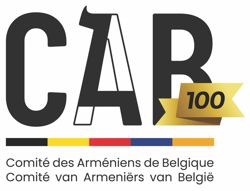Download as English version pdf - Télécharger en version Française pdf - Download in Nederlandse versie pdf
Early in the morning on September 27, Azerbaijan started active shelling along the line of contact. Peaceful settlements, including the capital Stepanakert, are also being shelled continuously starting from the day one. The population was called to take refuge in basements. Three weeks later, the conflict is raging more strongly than ever, and its toll is considerable.
Contrary to what has been heard in many of the news media, this conflict is not “incredibly complicated”. But it has been made confusing by misinformation, disinformation and war propaganda. We try and clarify a few key points below.
The fighting did not spontaneously “erupt”: it resulted from a planned attack
The offensive started after several years of aggressive rhetoric, several provocations on the line of contact, months of joint military exercises of Turkish - Azerbaijani forces and a week of intensive preparation and even confiscation of civilian pick-up cars for army needs in Azerbaijan. Azerbaijan escalated the conflict especially during the COVID19 crisis with a hope that border closures may help to prevent logistical supplies into Armenia and Nagorno Karabagh (NKR). Many analysts on the South Caucasus also understand that Azerbaijan was the first to launch hostilities on the Nagorno Karabagh-Azerbaijani line of contact, as Armenia has no motive to start a war. Both President Macron of France and Mike Pompeo have confirmed that Azerbaijan attacked Karabakh, not the other way around.
It is worth noting that, since 2016, the Armenian side has been calling for the installation under OSCE auspices of a monitoring system (including cameras) on the line of contact to prevent the escalation and track down the violations of armistice regime. This was firmly rejected by Azerbaijan on all occasions. Its absence naturally allows Azerbaijan to accuse NKR forces of breaking the cease-fire first and thus create confusion in the international media.
Turkey is a participant in this war
The other important component in the escalation is the presence in Azerbaijan of Turkish army units, including the air-force, which stayed over after the summer’s military exercises. Turkish F-16 fighter jets are taking part in the conflict, and one of them downed an Armenian Sukhoy 25 inside the Armenian (as opposed to NKR) airspace on 29 September. Experienced Turkish officers are present at the side of the Azerbaijani colleagues and Turkish intelligence is also in the service of Azerbaijani forces. Turkish UAVs that are being used during the whole month of the war against Armenian forces.
There is no official explanation as to why Turkish troops stayed over in Azerbaijan well beyond the end of the joint military exercises in August this year.
Djihadists are involved in the war
There is abundant evidence that Turkey transferred a larger number of Djihadi mercenaries – upward of 1000 –from Syria and Libya to fight against Armenians in Nagorno Karabagh. This has been documented by several international media present on the spot and by the French government. These battle-hardened, fanaticized and unhinged fighters introduce a qualitatively different element on the frontline which otherwise involves conscripts and career officers from Turkey and Azerbaijan. Their presence confirms that Armenian soldiers and civilians stand little chance if caught alive.
The attack aims to conquer Nagorno-Karabakh and remove its population
Azerbaijan’s president has clearly stated that the negotiations are useless and that he is "liberating" his land from enemy presence. The Armenians are convinced that his intentions are nothing less than genocidal. This is based on a consistent and extreme anti-Armenian discourse in Azerbaijan over the last 20 years, and on the atrocities committed against Armenian prisoners and civilians on numerous occasions in the past 25 years.
War crimes and other human rights violations are being committed
At this stage, mass human rights violations are being committed against the civilians of NKR. NKR cities, and especially its capital Stepanakert, are shelled methodically although there is no military target there. Amnesty International has denounced the systematic use of cluster bombs in this bombing campaign, which are banned by international law.
The most outrageous war crime was recorded in Hadrut town of NKR, where a group of Azerbaijani soldiers captured Armenian POWs and then executed them in front of the cameras wrapped in Armenian national flag. This is an example of summary execution, the worst violation of humanitarian and human rights laws and Geneva Conventions. The investigations on similar cases are ongoing.
As a result of the targeting of civilian settlements, roughly half of the population of NKR has already been evacuated to Armenia – about 75 000 people and hospitals are submerged by the civilians injured in the attacks. The latest strike on hospital from air by Turkish UAV is a war crime and perpetrators should be brought to justice.
Azerbaijan is not reclaiming “its own” territory
The lazy assertion that “NKR is internationally recognized as being part of Azerbaijan” is wrong. The status of NKR has not been determined and is under negotiation, under the
auspices of the OSCE’s Minsk Group chaired by France, the US and Russia. While several OSCE and UN documents mention the principle of “territorial integrity”, those documents, and others, also mention the “right to self-determination”. The purpose of the negotiations is precisely to try and reconcile these contradictory principles of international law.
If these negotiations have not progressed over the last 20 years, it is largely due to Azerbaijan’s refusal to allow the representatives of NKR themselves into the negotiations and to offer any guarantee for the safety of the Armenian population under a hybrid regime. On the contrary, the Armenians of NKR have always called for the continuation of negotiations without maximalist approach and expressed its readiness for reasonable compromises. Whatever the perceived legitimacy of Azerbaijani claims on Nagorno-Karabakh, it does not justify the indiscriminate shelling of civilian settlements or the targeting of civilian infrastructure such as hospitals.
The EU and others in the international community are encouraging reckless behaviour
The situation is exacerbated by the unprincipled and passive attitude of international players like EU, Council of Europe, UN and OSCE, all of which use generic wording calling for an end to the fighting and the resumption of negotiations. In the context of an all-out attack on NKR, such wording is a signal that the various European institutions will stay passive in the face of aggression, massive human rights violations and the importation of Djihadists into the Caucasus.
Azerbaijan always had a poor human rights record and now with the Aliev clan in power for a quarter of century the human rights situation in the country has deteriorated seriously. The torture and ill treatment according to the Council of Europe Committee on Prevention of Torture, CPT is endemic, systemic and widespread in Azerbaijan. According to the Council of Europe it also has the highest number of human rights defenders, opposition activists and journalists imprisoned.
External attention is vital
The indifference of the outside world to this conflict between David and Goliath adds to the suffering. As citizens of a young democracy, Armenians feel close to Europe and identify with its values. But Europe’s deafening silence adds to the suffering. Testimonies of sympathy and support will go a long way towards showing that many Europeans are paying attention, even if Europe’s representatives are not.
Nicolas Tavitian
President of the Committee of the Armenians of Belgium
 Français
Français  Nederlands
Nederlands  Հայերեն
Հայերեն 

